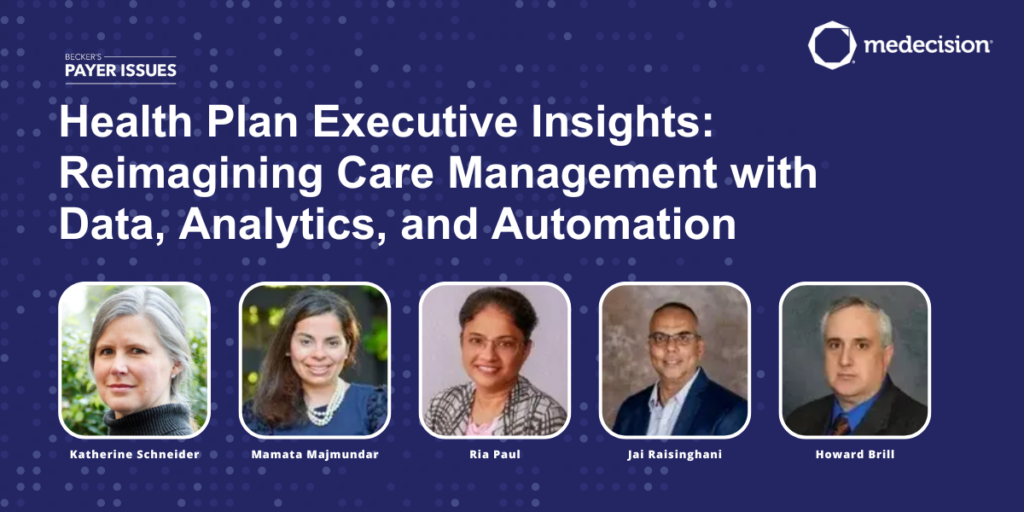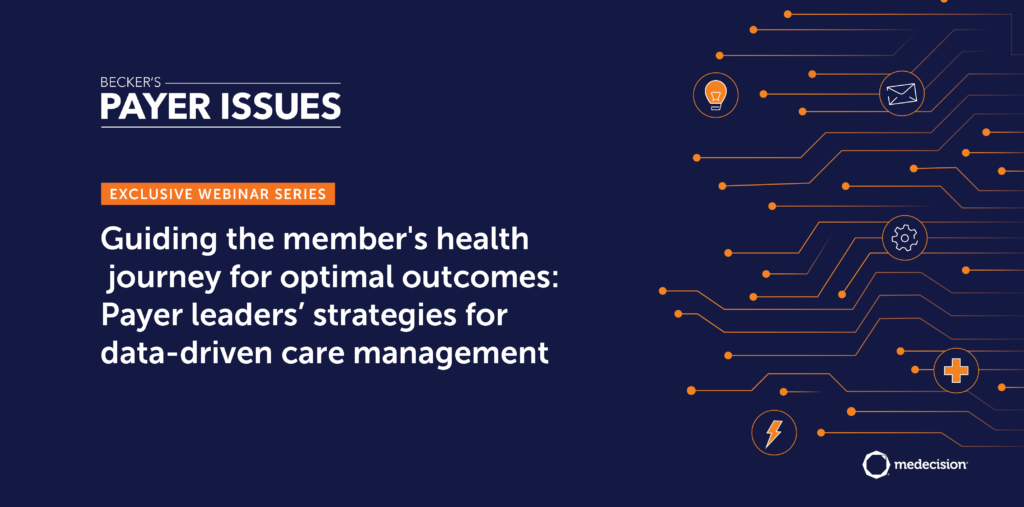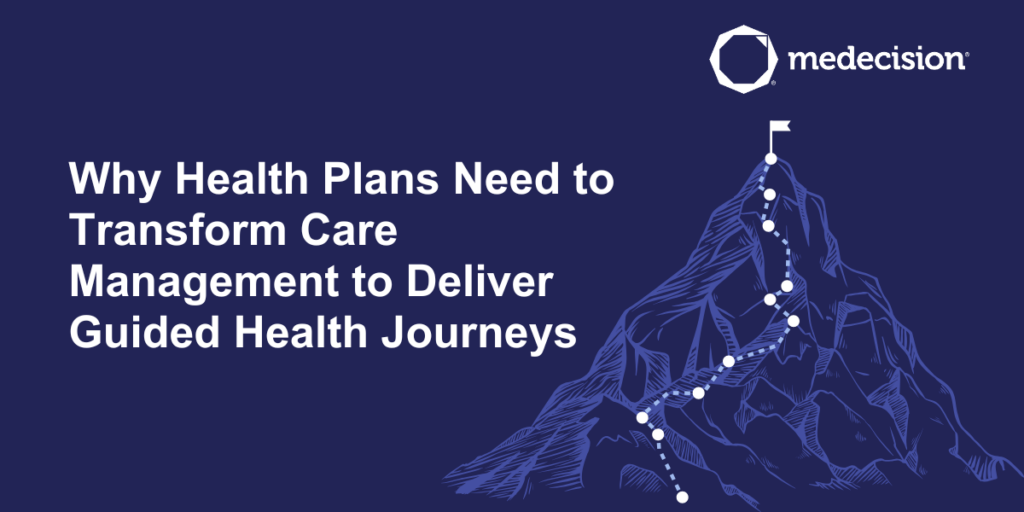
In its 2024 Trends for Payer IT report, technology analyst firm IDC explains that health plans are currently “undergoing a crisis of relevance, cost, and increased consumer expectations,” and many organizations are hindered by legacy technologies. The antidote? Health plans need to deliver the seamless digital care management (CM) and engagement initiatives that consumers have grown accustomed to in nearly every interaction with non-healthcare enterprises.
That level of engagement is not the current state of CM. Instead, a Medecision survey of more than 50 health plan executives finds today’s care management teams face a litany of pain points due to poor usability of CM technologies. Those challenges include communicating with members, creating and adjusting care plans as changes arise, building workflows based on personalized preferences, and establishing bespoke member populations based on clinical care, social determinants of health, and other data types. 
At the same time, a growing number of health plan executives are looking to data, analytics, and automation to overcome those pain points. Automation and AI hold considerable promise to modernize care management and reduce the administrative burden, enhance personalization, improve care coordination, increase engagement, and avoid care delays.
“There’s real potential to reduce massive volumes of data into meaningful information,” says Howard Brill, Senior Vice President, Population Health & Quality, Monroe Plan for Medical Care. “The core technologies, workflow support, and automation are essential to bringing the higher-priority cases to the attention of [CM teams] that can act on that information.”
Brill shared his perspectives on transforming care management with data, insights, and automation during a Becker’s Payer Issues webinar, “Guiding the member’s health journey for optimal outcomes: Payer leaders’ strategies for data-driven care management,” in September 2024.
The discussion also featured Mamata Majmundar, MD, Chief Medical Officer at Evry Health; Ria Paul, MD, Chief Medical Officer at Santa Clara Family Health Plan; Jai Raisinghani, Deputy Chief Information Officer at CenCal Health; and Katherine Schneider, MD, MPhil., FAAFP, Chief Medical Officer, Medecision.
 “AI, data, analytics and automation are helping leaders reimagine the possibilities for personalized, guided health journeys,” Medecision’s Schneider says.
“AI, data, analytics and automation are helping leaders reimagine the possibilities for personalized, guided health journeys,” Medecision’s Schneider says.
To transform CM with data, analytics, automation, and AI, health plans need strategies for different patient populations. Paul cites the need for a strategy specific to patients with congestive heart failure, and another for patients on palliative care. Paul explains that those strategies should include determining ways data can be mined and leveraged via an automated or algorithm-based approach to disseminate important information so humans can then act on it.
“Health plans have real opportunities to build on a data-driven digital-first platform to not only focus on the people who have chronic disease, but also to more effectively work on preventative measures for the 80% of the population that haven’t been triggered yet for conditions such as diabetes or hypertension,” Majmundar says. “In today’s tech-driven world, we can reach those people more quickly and provide tailored and coordinated care programs.”
Medecision survey findings show that more than half of executives are optimistic AI and machine learning will be “very impactful” at optimizing CM workflows to increase member engagement and improve health outcomes. Optimizing CM initiatives is critical because health plan executives indicate that current solutions, strategies, and workflows are not as effective as health plans need them to increase member engagement and outcomes or reduce unnecessary utilization and costs of care.
Data platforms with processes, workflows, analytics, and automation also empower care management teams with a comprehensive picture of patients, thereby easing their administrative burden and making them more effective.
“What we’re trying to do for our teams is reduce the amount of administrative work they have to do because, frankly, they have to reconstruct a view of the patient from multiple different sources,” Brill says. “Patients are poor historians of their healthcare, so it’s important for care management teams to have a complete picture that they’re not otherwise able to get from a direct conversation with the patient or member they’re working with.”
Health plans are already collecting a wide range of data that can be used to build holistic views of members, according to Medecision research. Those include social determinants of health, lab results, pharmacy, remote monitoring, faxes, call center activity, claims, and fitness trackers, as well as admission, discharge, and transfer data. The next step is integrating those data types into CM workflows so health plans can create contextual awareness about where members are in their health journeys. That view of members requires “intelligent personalization” powered by data and analytics to glean insights CM teams can leverage in real time, not 90 or more days after a health event happens.
“Our job is to help clinicians understand the power of that data to make it easier to overcome care management barriers by using data in a meaningful way to efficiently focus on members who need us the most,” Raisinghani says. “It is also very important to be transparent about how we use that data with members to build trust and enhance personalized member experiences.”
If your organization is interested in learning more about a solution to ingest and turn all relevant member data into insights that will empower guided health journeys for members, contact us to schedule a demo today.



About The Author: Medecision
Medecision is a leader in cloud-based, data-powered healthcare solutions, enabling risk-bearing entities to achieve improved health outcomes, optimized medical costs, reduced administrative costs, and personalized engagement. Our Aerial platform supports over 10% of the U.S. population, marking a significant milestone in advancing healthcare efficiency and effectiveness.
More posts by Medecision